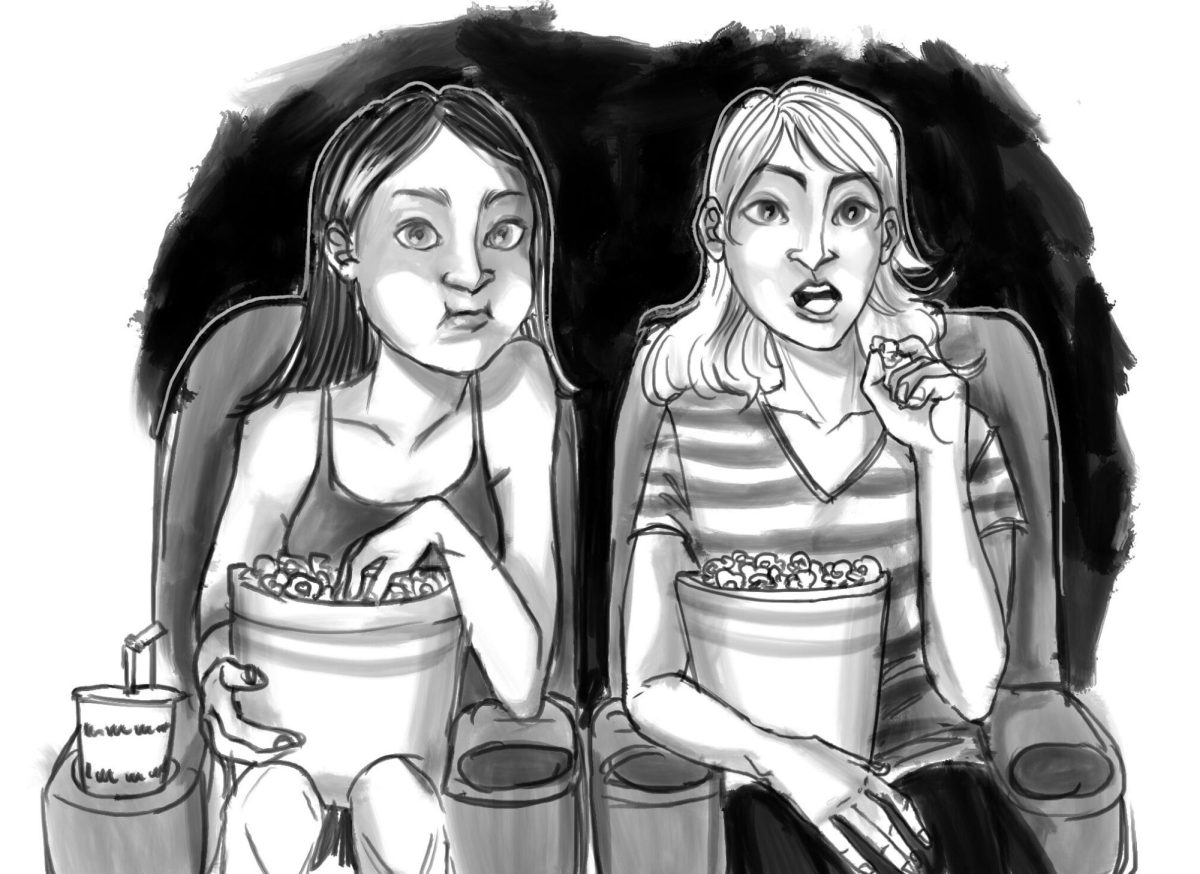Are teenagers too addicted to their phones these days? Copy editor Kate Jeffries explains some of the downsides of social media. Creative commons image from Dondy Razon on Flickr.
By Kate Jeffries
At this day in time, especially with Menlo’s location in the heart of Silicon Valley, the majority of our community owns a smartphone. When walking around the Menlo campus or the streets of downtown Menlo Park, you will often see at least one group of teenagers standing together, yet each immersed in their own social media bubble that is constantly accessible through their phones.
With apps like Snapchat, Instagram, Facebook, and Find my Friends, it takes about five seconds for one to see what their friends are up to at any given time. However, although this can be helpful for trying to coordinate plans or for communicating with friends who live far away, the constant need to post everything in our lives and in turn know the details of what everyone else is up to is a habit that is both time consuming and unhealthy.
Whenever I am bored or procrastinating, it has become almost second nature for me to go on my phone without any purpose except to check my social media accounts to see what others are doing. Not only is this bad habit distracting when I am trying to focus on homework, but social media platforms have also caused many to avoid living in the moment, instead viewing their lives through their camera lenses or computer screens.
During my study abroad program in France this past summer, I visited many famous monuments, historic museums, and beautiful parks and palaces. However, when standing in front of the “Mona Lisa,” a priceless masterpiece located within the Louvre Museum, the room was flooded with selfie sticks and aggressive crowds pushing one another for the best photo angle. While observing the crowd, I failed to see a single person standing in front of the world famous painting and observing its beauty. Instead, all I could see was hundreds of faces in front of their cameras and phones.
In addition to the social media addiction, the effects of always watching others lives and seeing everything they post online can be equally if not more negative for one’s mental health. It is easy to feel like you are constantly missing out when scrolling through your Instagram feed or checking Snapchat stories since people tend to only post when they are on trips, spending time with friends, or participating in other exciting activities.
Yet, you rarely see someone update their social media status or post a picture when sitting home alone. Therefore, it is easy to develop a fear of missing when the events seen on friend’s social media accounts might seem to be what occurs in their everyday lives, but in actuality is the few highlights they chose to share.
To be clear, I am not against social media. I use many social media platforms myself. However, I do believe that it is important to be aware of how social media can be addictive and even possess the capability to decrease one’s self confidence. Although this issue is ultimately inevitable within the Menlo community, there are ways to avoid the negative effects of social media, allowing it to be a positive influence on people’s lives.
I am definitely guilty of being addicted to my phone, but I have also adopted new methods to avoid becoming completely obsessed with my phone and social media accounts. One suggestion I have for being less dependent on your phone, is ending Snapchat streaks. If this is too hard for you to do I would suggest limiting the number of streaks you have and only keeping streaks with important people in your life or people who you don’t see often.
Also, I recommend turning off notifications for social media apps so that you are not tempted to check them when the notification pops up. I believe that small adjustments like these will allow for a healthy balance between being on your social media accounts and knowing when to take a break from your phone.








